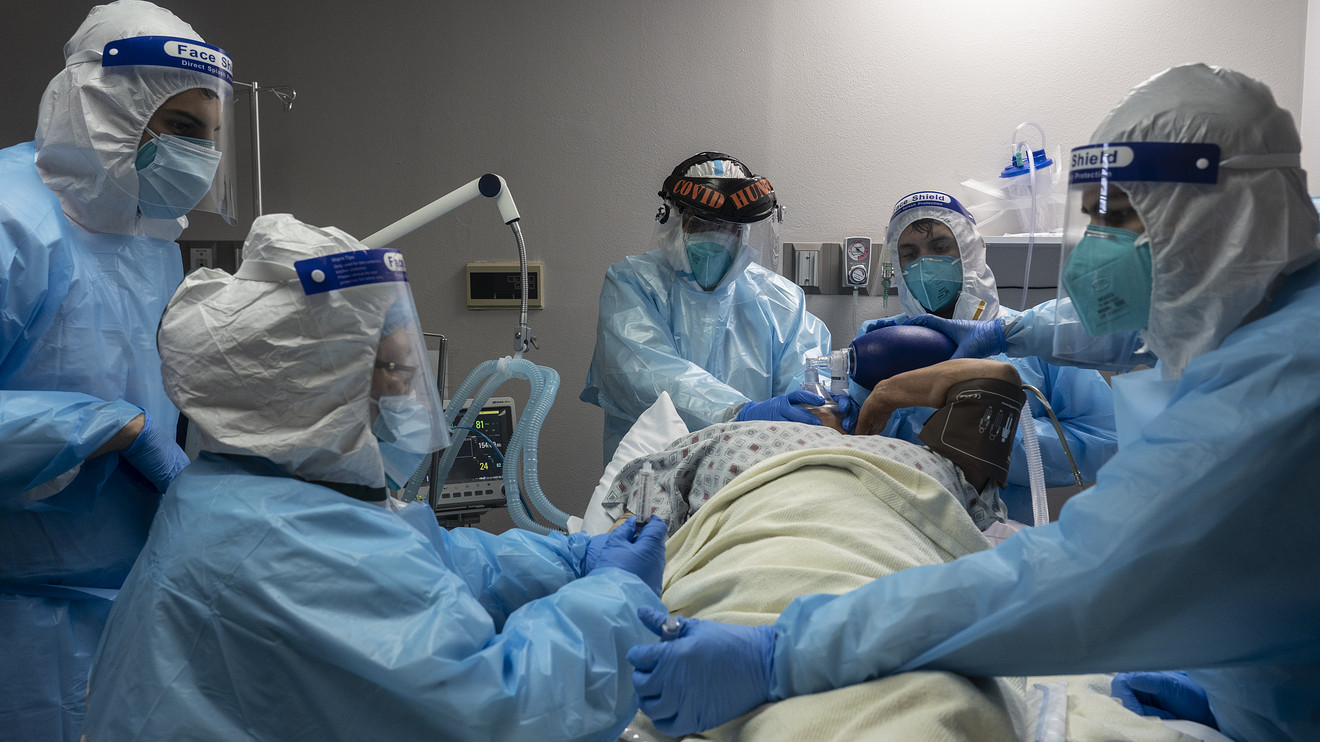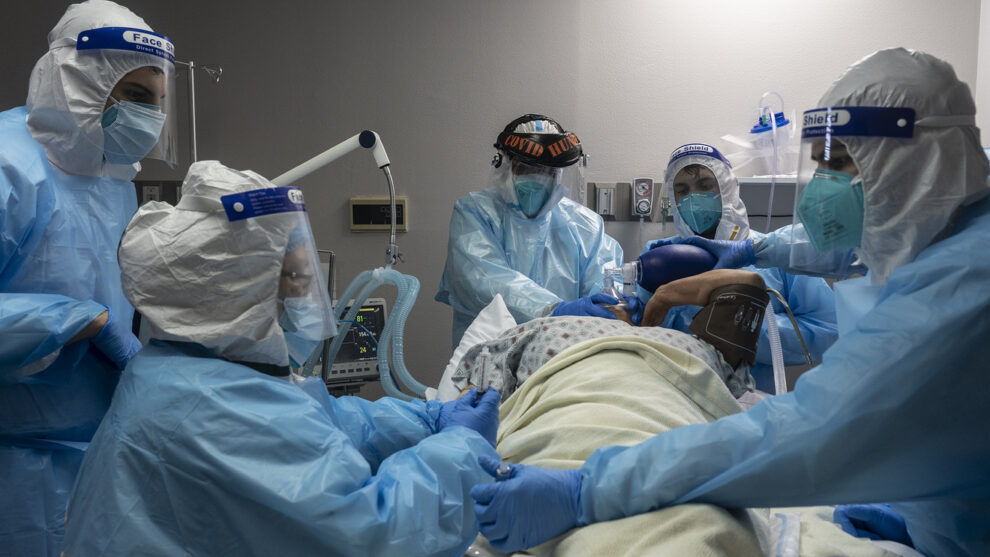
“Cytokine storms” were a common feature of the 1918 influenza, historians and health professionals say. But how large a part do such hyperaggressive immune responses, which can fatally harm the body, play in the 2020 coronavirus pandemic?
These scientists aimed to find out. Most adults with moderate-to-severe COVID-19 have a suppressed viral immune response when compared to those suffering from influenza, according to research published Saturday by scientists at St. Jude Children’s Research Hospital in Memphis, Tenn., and Washington University School of Medicine in St. Louis, Mo.
“Fewer than 5% of the COVID-19 patients in this study, including some of the sickest individuals, had the life-threatening, hyperinflammatory immune response known as cytokine storm syndrome. Cytokines are small proteins secreted by blood cells that help coordinate the immune response and trigger inflammation,” it found.
“We did identify a subset of COVID-19 patients with the broadly upregulated array of cytokines, which is a hallmark of cytokine storm,” said co-author Paul Thomas, Ph.D., a member of the St. Jude Department of Immunology. “But, overall, the average person with COVID-19 — even patients with moderate-to-severe disease — had less inflammation than the average person with flu.
He said patients would benefit from a rapid, reliable and inexpensive test to measure cytokines and identify those most likely to benefit from immunosuppressive treatment. “The findings suggest that treatment suppressing inflammation might only be effective in that minority of patients with the hyperinflammatory profile,” Thomas added.
A hallmark of some viruses: A surge of immune cells and their activating compounds (known as “cytokines”) effectively turned the body against itself, led to an inflammation of the lungs, severe respiratory distress, leaving the body vulnerable to secondary bacterial pneumonia. It was seen as one reason why seemingly healthy people were so hard hit by the 1918 flu.
The research included 168 adults with COVID-19, 26 adults with influenza and 16 healthy volunteers. More than 90% of the COVID-19 patients were hospitalized, about half in the intensive care unit; 23% of those hospitalized died. More than half of flu patients were hospitalized, 35% in the ICU, and 8% of flu patients hospitalized died.
The study found that the antiviral-immune response was “profoundly suppressed” in COVID-19 patients versus flu patients. In most cases, COVID-19 was not caused by broad hyperinflammation from cytokine storm, it said, but a lack of hyperinflammation in most of these coronavirus patients did not mean they had less disease.
Doctors and members of the public, as of now, were spooked by how otherwise strong, healthy people fell victim to the 1918 influenza, also known erroneously as the “Spanish flu.” Doctors today attribute that to the “cytokine storm,” the process where the immune system in healthy people reacts so strongly as to hurt the body.
The latest findings, published in Science Advances, a peer-reviewed open-access journal published by the American Association for the Advancement of Science, suggest that a majority of COVID-19 patients are not candidates for treatment with steroids such as dexamethasone that, the researchers argue, can backfire in some patients.
Dexamethasone has, however, been found to be effective in treating severely-ill COVID-19 patients, according to three studies published in September in JAMA. Researchers reported in mid-June that low doses of dexamethasone played a significant role in helping to reduce deaths in hospitalized COVID-19 patients on ventilators by one-third.
Other research finds that cytokine storms remain a risk with older patients during the 2020 coronavirus pandemic. Genes in the body that appear to be a major factor giving SARS-CoV-2 access to the heart cells become more active with age, according to research published in August in the Journal of Molecular and Cellular Cardiology.
The researchers found that “inflammation in older people can be more intense, causing organ damage,” Johns Hopkins University reported. “Lung tissue becomes less elastic over time, making respiratory diseases like COVID-19 a particular concern for older people.” Thus, a cytokine storm in those patients may promote the inflammation and acute respiratory distress syndrome.






